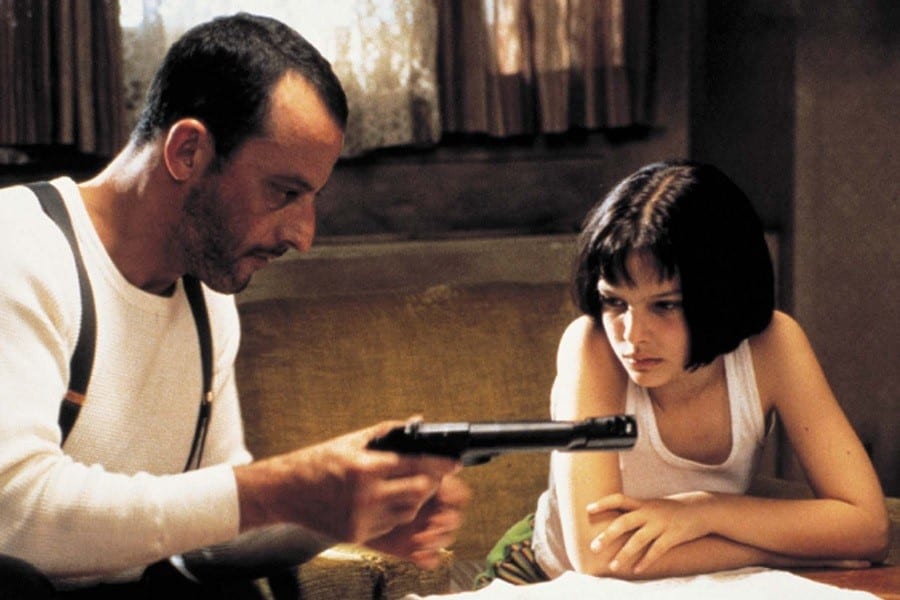
Death for Hire
Murder, it would seem, is a rather expensive business. And no, we’re not talking about the real world here, but rather the world of thrilling fiction, where shady characters flit through the shadows, their leather-gloved hands clutching a silenced pistol and a high-priced check. From novels to films, the trope of hiring a hitman has been a staple in the thrilling genre, providing an undercurrent of tension, a hint of the unknown, and a delightful spark of danger.
Picture this. The protagonist is embroiled in a high-stakes situation, perhaps a political coup or a corporate scandal. They’re all set to expose the truth when suddenly, their partner is mysteriously eliminated. A hitman, a whisper in the shadows, has been brought into the narrative. Now, that’s how you ramp up the intrigue in thrillers!
The subject of hired killers is captivating not only because of the covert and criminal aspect, but also due to the ethical and moral questions it raises. The concept of one character deciding to kill another is not new, and it’s a cornerstone of conflict in literature. But throw money into the equation—making death a business transaction—and you’ve got an entirely different ethical cocktail that leaves readers questioning, “What would I do in such a situation?”
Let’s first talk about the hitmen themselves. They are the unsung heroes (or rather antiheroes) of thrillers. They’ve always had a specific allure, a mystique that captures our imaginations. They’re not just characters; they’re a catalyst for change in the narrative, the gear that turns the machine of suspense. They’re the enigma we fear and the force we cannot predict.
In their world, life has a price tag, and they are the ones to collect it. To them, death is just a transaction, as ordinary as buying bread, only with a higher price and a rather permanent receipt. It’s this clinical detachment from their profession that makes them so chilling, yet strangely compelling.
But who are these people who hire hitmen? They’re desperate characters who feel they’ve exhausted all other options. Or are they? Sometimes, it’s about convenience, a simple solution to an otherwise complex problem. The person who hires a hitman in a thriller is typically someone with much to lose, be it power, money, or secrets. And they’re ready to invest in silence.
In other scenarios, they’re characters whose motives are deeply personal. Revenge, jealousy, fear—each emotion pushes them further towards this dark decision. And then, there are the characters who hire hitmen simply to show they can, because they’re untouchable, creating an aura of fear and dominance that underscores their role in the narrative.
The transaction itself is fascinating to observe. It’s rarely as simple as a wad of cash being handed over in a grimy alleyway. It’s a dance, a subtle game of cat and mouse, an intricate web of contacts and middlemen, covert meetings, and coded messages.
Every exchange is steeped in subtext, every gesture fraught with tension. There’s always the question of trust, an uneasy alliance between two parties. After all, if someone is willing to kill for money, what’s to stop them from turning their talents against their employer?
Perhaps most intriguing is the aftermath of such a transaction. What happens once the deal is struck and the deed is done? There’s a palpable sense of foreboding as the employer waits, unaware of when and how the hit will take place.
Simultaneously, the narrative takes on a new pace, a race against time as the intended victim unknowingly carries on with their life. Readers, aware of the impending danger, are left on the edge of their seats. Will the hit be successful? Will the victim evade their fate? The suspense is almost unbearable!
Yet, one cannot ignore the transformation this decision brings in the character who hires a hitman. Their hands may not wield the weapon, but their conscience carries the weight of the act. Whether they grapple with guilt, fear of discovery, or the realization of their own capacity for evil, these characters often face a reckoning that adds another layer of tension to the story.
In conclusion, hiring a hitman in thrillers isn’t just a plot device. It’s a doorway into a world of moral ambiguity, a catalyst that drives the narrative, and a psychological journey that unravels characters. It’s a dance with danger, a pact with the devil, a journey into the shadows.
So, next time you pick up a thriller, watch out for that whisper in the shadows, that silenced pistol, that lethal transaction. Because where there’s a hitman, there’s a story worth dying for. Now, isn’t that a thrilling thought?
advertisement
Great Hitmen in Thrillers
Leading the charge is the quintessential gentleman spy—none other than Ian Fleming’s James Bond. Yes, 007 might technically be on Her Majesty’s Secret Service, but with that license to kill and a body count higher than his martini intake, he fits snuggly into the hitman category. Charm oozes from every pore of this debonair agent, making him just as lethal in a cocktail party as he is in a high-speed car chase. With his tuxedos, gadget-laden Aston Martins, and shaken (not stirred) martinis, Bond has defined the deadly sophistication we’ve come to associate with this breed of characters.
Moving from page to screen, let’s tip our hat to the quietly terrifying Anton Chigurh from Cormac McCarthy’s novel, adapted into the Coen Brothers’ film, “No Country for Old Men”. With his trademark captive bolt pistol and a philosophical approach to fate and mortality, Chigurh redefines the phrase “bone-chilling”. His nonchalant brutality and stoicism contribute to his icy aura, solidifying his status as one of the most menacing hired killers in thriller history.
Leaping across the pond, we land in the realm of Luc Besson’s film, “Léon: The Professional”. Jean Reno’s Leon is a complex character who brilliantly blends menace and tenderness. This cleaner, a euphemism for hitman, is a master of his craft. He also showcases a fascinating code of ethics and unexpectedly soft side while teaching a young Natalie Portman the clandestine arts of his deadly trade. This paradox—ruthless hitman and nurturing father figure—makes Leon an unforgettable figure in the hitman genre.
For our next character, we delve into the world of Thomas Perry’s Jane Whitefield series. Jane is a rarity in the thriller world – a hitwoman. Ingenious and skilled, she doesn’t technically kill but makes people disappear from the reach of killers. Her tactics are more about evasion than direct confrontation, but her knack for outsmarting deadly foes lands her a spot on our list.
Last, but by no means least, we have John Rain from Barry Eisler’s novel series. This half-Japanese, half-American contract killer specializes in making his hits look like natural causes. Equipped with a detailed knowledge of the human body from his martial arts training, Rain is a maestro of silent, untraceable assassinations. His inner monologues about morality and the struggles he faces while trying to quench his desire for a normal life make him a complex and engaging character.
Each of these thrilling characters offers a unique flavor to the recipe of the hired killer trope. They are enigmatic and captivating, revealing various shades of gray within a generally black-and-white moral landscape. Through their stories, they throw open the doors to a shadowy world where death is a transaction, ethics are negotiable, and danger is just part of the job description. But remember, dear readers, as you traverse these tales of intrigue and suspense: it’s all fun and games until someone loses a life. Here’s to thrilling, chilling, and, most importantly, surviving to read another day!
More Action Thriller Features
Action Thrillers for Independence Day
Celebrate with these action thrillers
From Page to Film
Reinterpreting the Best Action-Adventure Novels
International Adventure Books
Action and Adventure for International Armchair Travelers



